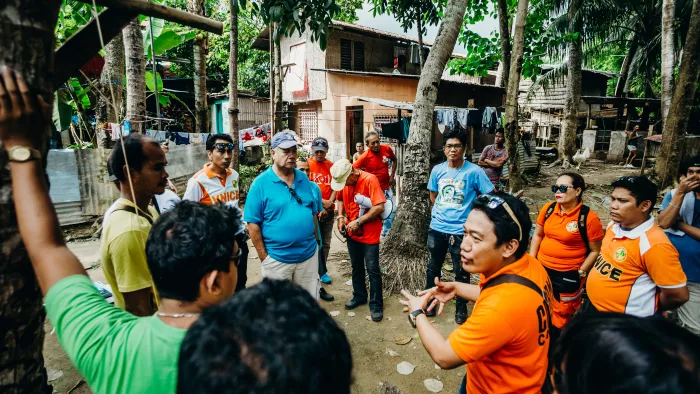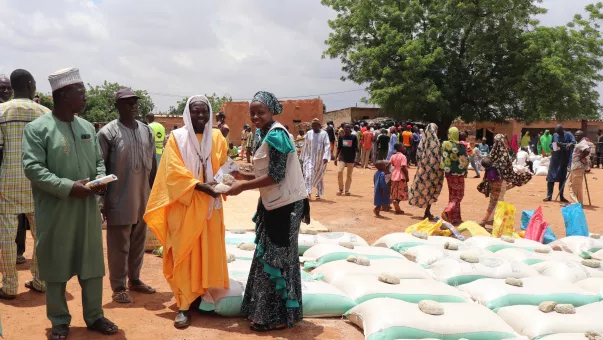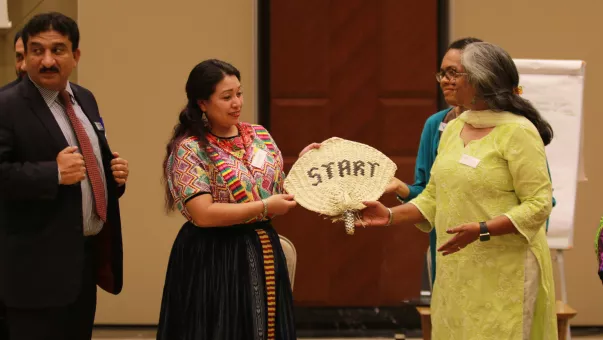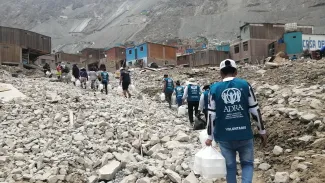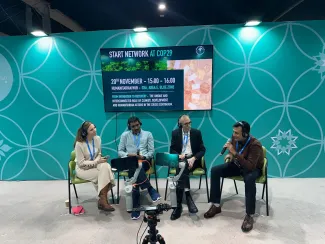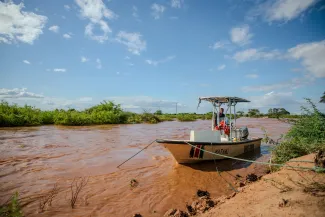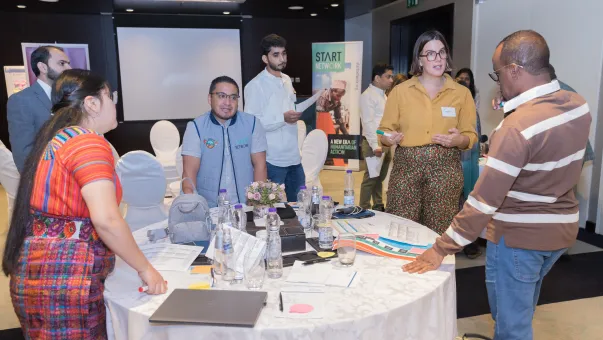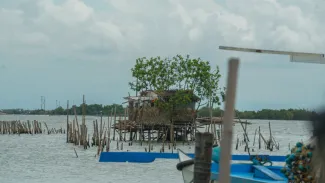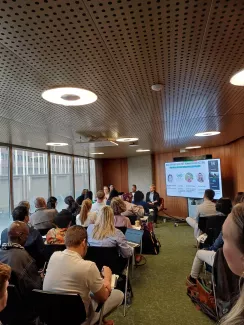The concentration of power, influence, and resources in the humanitarian system still lie in the global North. But local organisations are responsible for the vast majority of humanitarian responses and have a deep connection to their communities, meaning they can better understand local needs.
The international aid system has been largely dominated by international organisations that avoid investing in organisations or initiatives they perceive to be at greater risk. This means that many local and national organisations are excluded from taking leading roles or even directly accessing funding.
Changing the status quo needs a radical shift to locally-led action, where locally-led networks and organisations have the responsibility for decision-making.
This needs a new approach to how we operate, and a new way of organising ourselves, based on local organisations rather than one centralised global office. And it needs a new way of thinking which values the contribution that different organisations can make.
Our approach to locally led action
Start Network is evolving into a diverse “network of networks” where locally led groups of members have access to their own resources and make the decisions on how these are used. Our evolving new structure is based on locally-led, self-governing national and regional hubs with their own national and local members.
We are at the beginning of the journey, and there will be a lot to learn along the way. But we hope that our example will ultimately drive wider reform by demonstrating a powerful and positive alternative to the current system.
Examples of locally led action
The Disasters & Emergencies Preparedness Programme (2015–2018) provided flexible funding for national NGOs to develop effective humanitarian response where it was needed the most. It worked across ten countries and involved nearly half of the Start Network membership. Many national agencies used their experience with DEPP to develop new programmes.
The DEPP Innovation Labs (2017–2019) built on the DEPP programme to create national innovation labs where local innovators could develop solutions to humanitarian challenges in their own country.
Tonga locally led rapid coordination and response fund (2022). In January 2022 the eruption of the Hunga Tonga Hunga Ha’apai underwater volcano struck the Tonga archipelago, with an impact on the entire population. Start Network's Pacific hub, led by PIANGO and its local member, Civil Society Forum of Tonga (CSFT), responded through a locally-led rapid response prototype fund.
The Community-led Innovation Partnership (launched in 2020) works through hubs, that support local innovators so they can identify the humanitarian problems that matter in their communities and create solutions based on local knowledge.
The global FOREWARN community of experts provides information on risk to help us decide when and how to act before a disaster strikes. National FOREWARN pilots (since 2020) now advise on anticipatory action in their own countries, based on local knowledge and expertise.
The Start Fund uses local decision-making to select projects based on members’ knowledge of their specific country or region. Now, National Start Funds mean that local organisations can also manage their own funds.
An iterative localisation framework for a locally led Start Network
This framework is set out as a series of intentions and questions across 11 elements where we feel change is needed. The intention outlines the vision of where we want to be or get to as a network. It also outlines questions that Start Network needs to answer at all levels: leadership, management, staff, membership, Hubs, etc.

